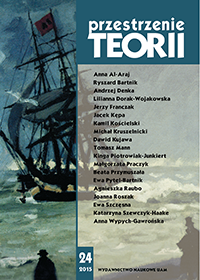Wittgenstein i argumentacja krytyczna
Wittgenstein and Critical Reasoning
Author(s): Richard ShustermanContributor(s): Urszula Lisowska (Translator)
Subject(s): Philosophy, Analytic Philosophy
Published by: Uniwersytet Adama Mickiewicza
Summary/Abstract: In his paper Wittgenstein and Critical Reasoning, Richard Shusterman analyses the influence which Wittgensteinian aesthetics has had on contemporary criticism. Concentrating primarily on the second phase of Wittgenstein’s philosophy, Shusterman first demonstrates how the idea of language games and related concepts undermined both essentialist deductive and quasi-scien- tific inductive models of criticism. In place of these two approaches, Shusterman argues, Wittgensteinian aesthetics offers a new one, which he describes as perceptual-persuasive. In the next step, however, Shusterman observes that Wittgenstein’s followers often commit the very fallacy that Wittgenstein wanted to avoid, by imposing the perceptual-persuasive model as the only valid solution for criticism. However, in order to be more in line with Wittgensteinian aes- thetics, he argues, we should rather recognise the plurality of possibilities – perceptual-persuasive, deductive or inductive – whose choice depends on the language game currently played.
Journal: Przestrzenie Teorii
- Issue Year: 2016
- Issue No: 25
- Page Range: 323-345
- Page Count: 23
- Language: Polish

